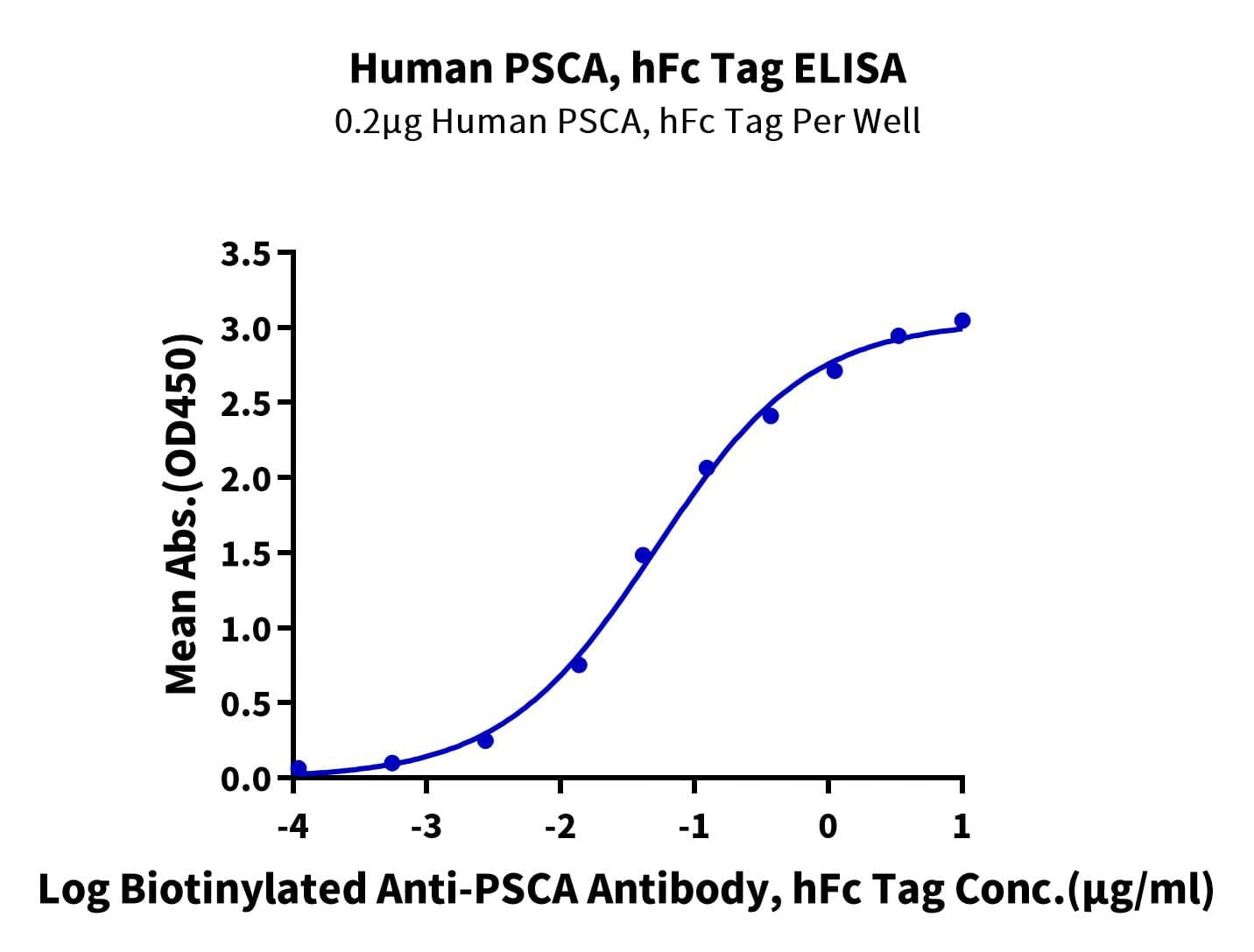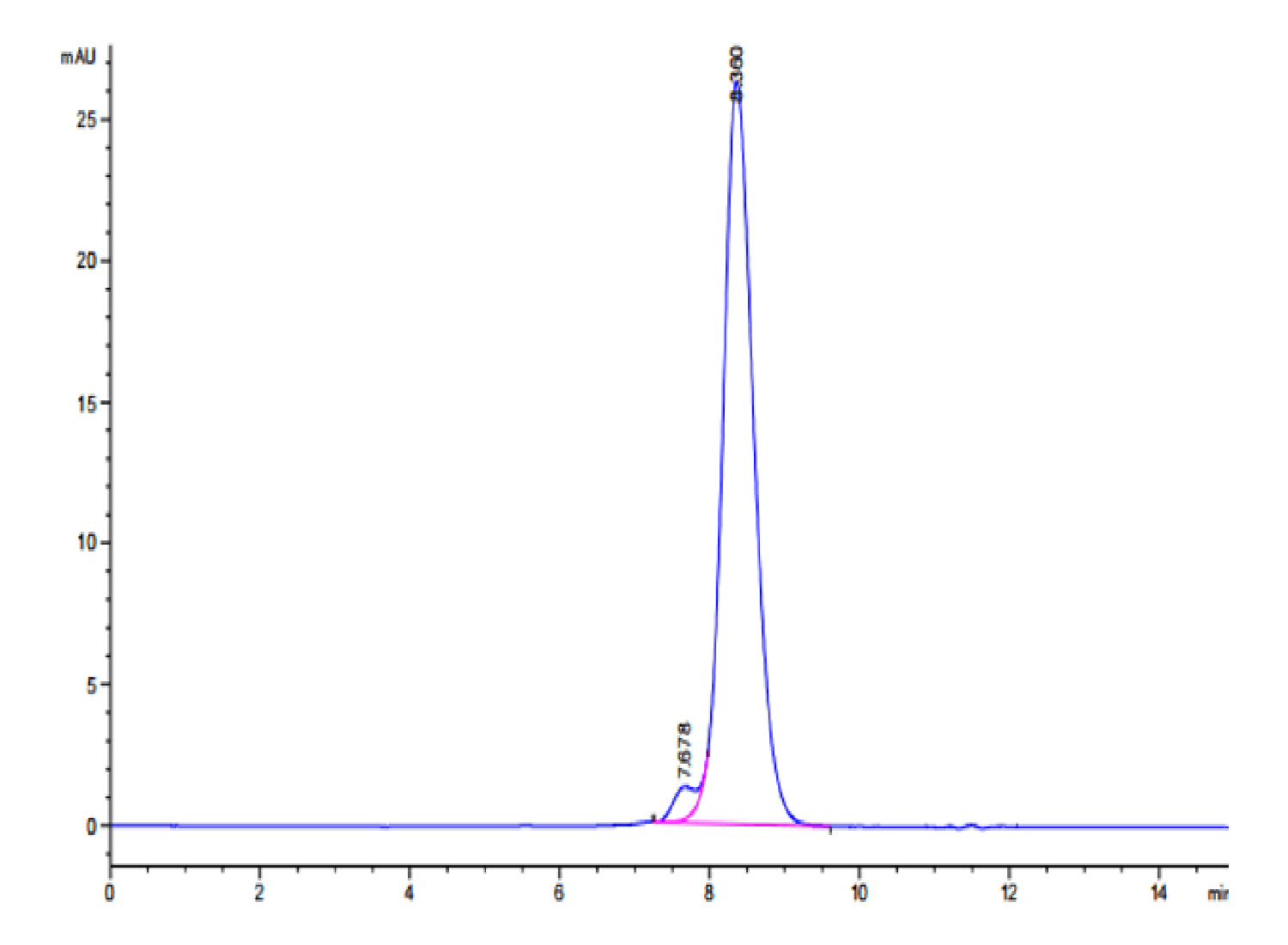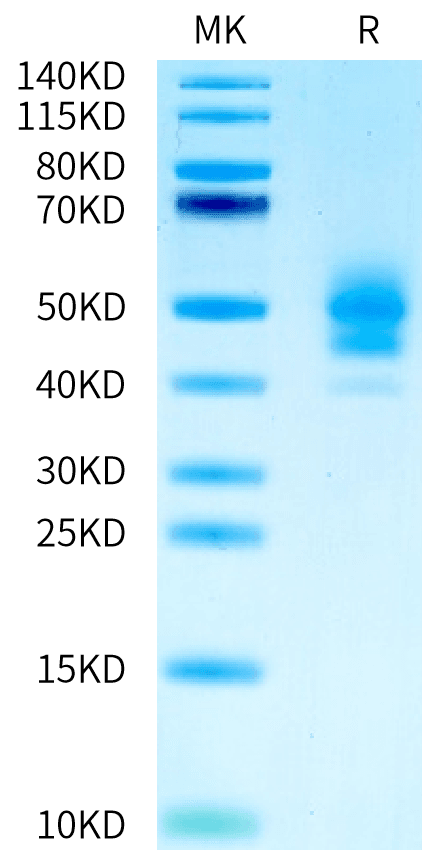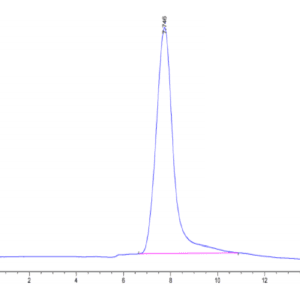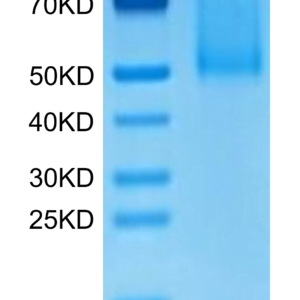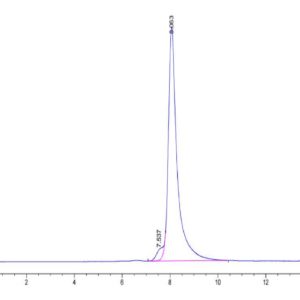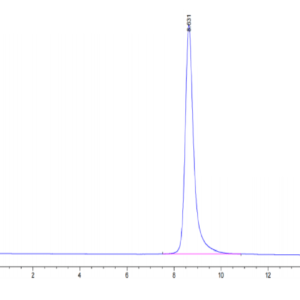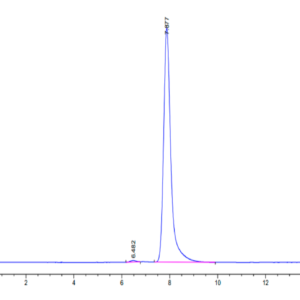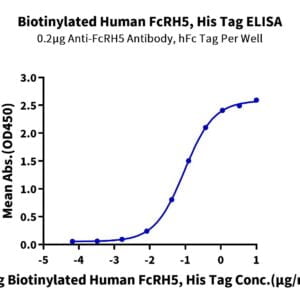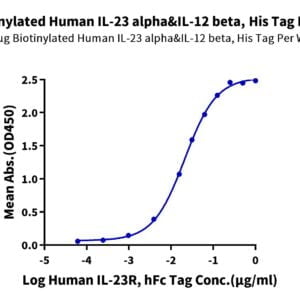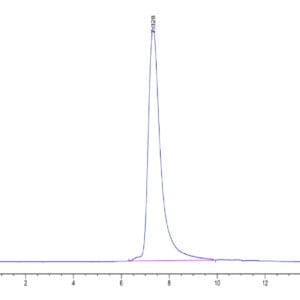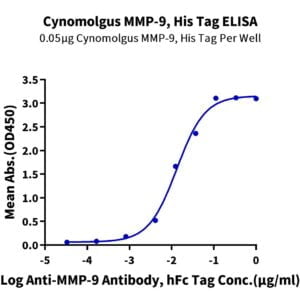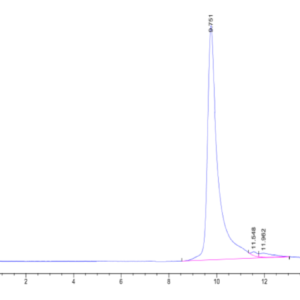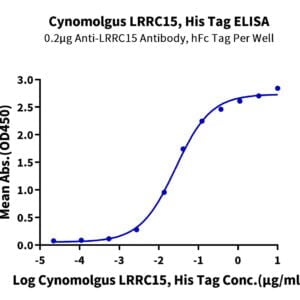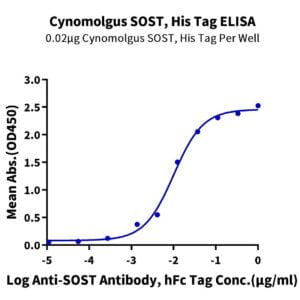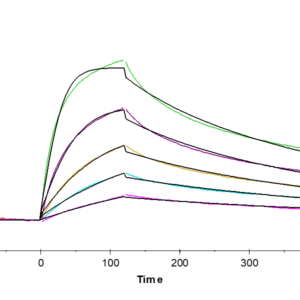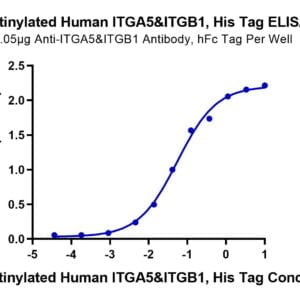| Weight | 1 lbs |
|---|---|
| Dimensions | 9 × 5 × 2 in |
| accession | O43653 |
| express system | HEK293 |
| product tag | N-hFc |
| purity | > 95% as determined by Tris-Bis PAGE;> 95% as determined by HPLC |
| background | Gastric cancer is a deadly malignancy and is a prognostically unfavorable entity with restricted therapeutic strategies available. Prostate stem cell antigen (PSCA) is a glycosylphosphatidylinositol (GPI)-anchored cell surface protein widely expressed in bladder, prostate, and pancreatic cancers. Existing studies have thoroughly recognized the availability of utilizing anti-PSCA CAR-T cells in the treatment of metastatic prostate cancer and non-small-cell lung cancer. |
| molecular weight | The protein has a predicted MW of 34.3 kDa. Due to glycosylation, the protein migrates to 40-55 kDa based on Tris-Bis PAGE result. |
| available size | 100 ¬Ķg, 500 ¬Ķg |
| endotoxin | Less than 1EU per őľg by the LAL method. |
Human PSCA Protein 3974
$315.00 – $1,050.00
Summary
- Expression: HEK293
- Functional: Yes (ELISA)
- Amino Acid Range: Leu12-Ser86
Human PSCA Protein 3974
| protein |
|---|
| Size and concentration 100, 500µg and lyophilized |
| Form Lyophilized |
| Storage Instructions Valid for 12 months from date of receipt when stored at -80°C. Recommend to aliquot the protein into smaller quantities for optimal storage. Please minimize freeze-thaw cycles. |
| Storage buffer Shipped at ambient temperature. |
| Purity > 95% as determined by Tris-Bis PAGE |
| target relevance |
|---|
| Gastric cancer is a deadly malignancy and is a prognostically unfavorable entity with restricted therapeutic strategies available. Prostate stem cell antigen (PSCA) is a glycosylphosphatidylinositol (GPI)-anchored cell surface protein widely expressed in bladder, prostate, and pancreatic cancers. Existing studies have thoroughly recognized the availability of utilizing anti-PSCA CAR-T cells in the treatment of metastatic prostate cancer and non-small-cell lung cancer. |
| Protein names Prostate stem cell antigen |
| Gene names PSCA,PSCA UNQ206/PRO232 |
| Mass 9606Da |
| Function May be involved in the regulation of cell proliferation. Has a cell-proliferation inhibition activity in vitro.; May act as a modulator of nicotinic acetylcholine receptors (nAChRs) activity. In vitro inhibits nicotine-induced signaling probably implicating alpha-3:beta-2- or alpha-7-containing nAChRs. |
| Subellular location Cell membrane ; Lipid-anchor, GPI-anchor . |
| Tissues Highly expressed in prostate (basal, secretory and neuroendocrine epithelium cells). Also found in bladder (transitional epithelium), placenta (trophoblasts), stomach (neuroendocrine cells), colon (neuroendocrine cells) and kidney (collecting ducts). Overexpressed in prostate cancers and expression is correlated with tumor stage, grade and androgen-independence. Highly expressed in prostate cancer bone metastases. Expressed in gastric epithelial cells, mainly in the isthmus (at protein level). Not detected in normal intestinal epithelium (at protein level). Expressed in brain cortex; expression is significantly increased in the front cortex of Alzheimer disease patients. |
| Structure Interacts with CHRNA4. |
| Post-translational modification N-glycosylated. |
| Target Relevance information above includes information from UniProt accession: O43653 |
| The UniProt Consortium |
Data
Publications
Publications
| pmid | title | authors | citation |
|---|---|---|---|
| We haven't added any publications to our database yet. | |||
Protocols
| relevant to this product |
|---|
Documents
| # | ||
|---|---|---|
| Please enter your product and batch number here to retrieve product datasheet, SDS, and QC information. | ||
